Latest Posts by decadentheartflower - Page 5
If you can’t stop thinking about it, don’t stop working for it
Michael Jordan (via studyblr)



This is a summary of college only using two pictures; expensive as hell.
That’s my Sociology “book”. In fact what it is is a piece of paper with codes written on it to allow me to access an electronic version of a book. I was told by my professor that I could not buy any other paperback version, or use another code, so I was left with no option other than buying a piece of paper for over $200. Best part about all this is my professor wrote the books; there’s something hilariously sadistic about that. So I pretty much doled out $200 for a current edition of an online textbook that is no different than an older, paperback edition of the same book for $5; yeah, I checked. My mistake for listening to my professor.
This is why we download.
Alternatives to buying overpriced textbooks
Textbooknova
Bookboon
Textbookrevolution
GaTech Math Textbooks
Ebookee
Freebookspot
Free-ebooks
Getfreeebooks
BookFinder
Oerconsortium
Project Gutenberg

I finally finished my final exams and also took the results , this year was a difficult year for me and also my last year of school which means next year i will be in university inshallah.

▫️R E A L I T Y ▪️
Since taking some time off Tumblr and coming back, I’ve decided to unsubscribe to the typical studyblr method of making notes look nice, of editing photos, and of romanticising my life. I understand that this will make my content less appealing on an aesthetic level, but I’ve come to really dislike a lot of the superficiality that being online perpetuates. I agree that beautiful study photos are just that: beautiful, awe-inspiring, and maybe even motivational, but I feel that often seeing these photos can dishearten others about their own progress, and often even those who post such photos feel locked in to appeal to the masses on a constant basis, which isn’t realistic or maintainable.
I can’t promise that I won’t edit my photos, that I won’t reblog aesthetically pleasing pictures, or that I won’t choose to withhold information about my student life, but I want to be more open about struggles as well as victories because even though most of us are just strangers on the Internet who know one another by username or first name, I feel that a lot of us go through similar struggles and cope with it alone (or more alone than need be) for the sake of appearances.
I am going to start using and tracking “realstudy” in addition to my own username, feel free to join if you want (or don’t, that’s cool too).
Mon xxx



You know what feels good? Getting into the university and stream of your choice and being surrounded by wonderful people ✨
Taken from my studygram: @equaticnss



one of my lecturers printed us a step-by-step guide to writing an essay for an assignment we had. i decided to type it up and share it with you guys. i think for the most part it is really useful and a super simple way to break down your essay. hope this helps :~)

I believe in free education, one that’s available to everyone; no matter their race, gender, age, wealth, etc… This masterpost was created for every knowledge hungry individual out there. I hope it will serve you well. Enjoy!
FREE ONLINE COURSES (here are listed websites that provide huge variety of courses)
Alison
Coursera
FutureLearn
open2study
Khan Academy
edX
P2P U
Academic Earth
iversity
Stanford Online
MIT Open Courseware
Open Yale Courses
BBC Learning
OpenLearn
Carnegie Mellon University OLI
University of Reddit
Saylor
IDEAS, INSPIRATION & NEWS (websites which deliver educational content meant to entertain you and stimulate your brain)
TED
FORA
Big Think
99u
BBC Future
Seriously Amazing
How Stuff Works
Discovery News
National Geographic
Science News
Popular Science
IFLScience
YouTube Edu
NewScientist
DIY & HOW-TO’S (Don’t know how to do that? Want to learn how to do it yourself? Here are some great websites.)
wikiHow
Wonder How To
instructables
eHow
Howcast
MAKE
Do it yourself
FREE TEXTBOOKS & E-BOOKS
OpenStax CNX
Open Textbooks
Bookboon
Textbook Revolution
E-books Directory
FullBooks
Books Should Be Free
Classic Reader
Read Print
Project Gutenberg
AudioBooks For Free
LibriVox
Poem Hunter
Bartleby
MIT Classics
Many Books
Open Textbooks BCcampus
Open Textbook Library
WikiBooks
SCIENTIFIC ARTICLES & JOURNALS
Directory of Open Access Journals
Scitable
PLOS
Wiley Open Access
Springer Open
Oxford Open
Elsevier Open Access
ArXiv
Open Access Library
LEARN:
1. LANGUAGES
Duolingo
BBC Languages
Learn A Language
101languages
Memrise
Livemocha
Foreign Services Institute
My Languages
Surface Languages
Lingualia
OmniGlot
OpenCulture’s Language links
2. COMPUTER SCIENCE & PROGRAMMING
Codecademy
Programmr
GA Dash
CodeHS
w3schools
Code Avengers
Codelearn
The Code Player
Code School
Code.org
Programming Motherf*?$%#
Bento
Bucky’s room
WiBit
Learn Code the Hard Way
Mozilla Developer Network
Microsoft Virtual Academy
3. YOGA & MEDITATION
Learning Yoga
Learn Meditation
Yome
Free Meditation
Online Meditation
Do Yoga With Me
Yoga Learning Center
4. PHOTOGRAPHY & FILMMAKING
Exposure Guide
The Bastards Book of Photography
Cambridge in Color
Best Photo Lessons
Photography Course
Production Now
nyvs
Learn About Film
Film School Online
5. DRAWING & PAINTING
Enliighten
Ctrl+Paint
ArtGraphica
Google Cultural Institute
Drawspace
DragoArt
WetCanvas
6. INSTRUMENTS & MUSIC THEORY
Music Theory
Teoria
Music Theory Videos
Furmanczyk Academy of Music
Dave Conservatoire
Petrucci Music Library
Justin Guitar
Guitar Lessons
Piano Lessons
Zebra Keys
Play Bass Now
7. OTHER UNCATEGORIZED SKILLS
Investopedia
The Chess Website
Chesscademy
Chess.com
Spreeder
ReadSpeeder
First Aid for Free
First Aid Web
NHS Choices
Wolfram Demonstrations Project
Please feel free to add more learning focused websites.
*There are a lot more learning websites out there, but I picked the ones that are, as far as I’m aware, completely free and in my opinion the best/ most useful.
sometimes, you don’t magically improve how you want to. sometimes, instead of getting an a in that class you worked really hard in, you get a c. but going from a fail to a c is so much progress in itself, and you should be proud of yourself for that. glorifying getting a’s is great and all, but we all need to see more posts glorifying real progress, whatever that looks like. you had failed that test completely but now you scraped a pass? progress! you got a d in that class last year and now it’s gone up to a c or a b? progress! a’s are wonderful and all, but sometimes you’ve got to cherish the other, less typically celebrated moments. no one goes from a fail to a 100 overnight. give yourself some credit.
Do yourself a favor. Learn to code. Here's how.
I’ve said this to my non-techie friends countless times. It’s no secret that being able to code makes you a better job applicant, and a better entrepreneur. Hell, one techie taught a homeless man to code and now that man is making his first mobile application.
Learning to code elevates your professional life, and makes you more knowledgeable about the massive changes taking place in the technology sector that are poised to have an immense influence on human life.
(note: yes I realize that 3/5 of those links were Google projects)
But most folks are intimidated by coding. And it does seem intimidating at first. But peel away the obscurity and the difficulty, and you start to learn that coding, at least at its basic level, is a very manageable, learnable skill.
There are a lot of resources out there to teach you. I’ve found a couple to be particularly successful. Here’s my list of resources for learning to code, sorted by difficulty:
Novice
Never written a line of code before? No worries. Just visit one of these fine resources and follow their high-level tutorials. You won’t get into the nitty-gritty, but don’t worry about it for now:
Dash - by General Assembly
CodeAcademy
w3 Tutorials (start at HTML on the left sidebar and work your way down)
Intermediate
Now that you’ve gone through a handful of basic tutorials, it’s time to learn the fundamentals of actual, real-life coding problems. I’ve found these resources to be solid:
Khan Academy
CodeAcademy - Ruby, Python, PHP
Difficult
If you’re here, you’re capable of building things. You know the primitives. You know the logic control statements. You’re ready to start making real stuff take shape. Here are some different types of resources to turn you from someone who knows how to code, into a full-fledged programmer.
Programming problems
Sometimes, the challenges in programming aren’t how to make a language do a task, but just how to do the task in general. Like how to find an item in a very large, sorted list, without checking each element. Here are some resources for those types of problems
Talentbuddy
TopCoder
Web Applications
If you learned Python, Django is an amazing platform for creating quick-and-easy web applications. I’d highly suggest the tutorial - it’s one of the best I’ve ever used, and you have a web app up and running in less than an hour.
Django Tutorial
I’ve never used Rails, but it’s a very popular and powerful framework for creating web applications using Ruby. I’d suggest going through their guide to start getting down-and-dirty with Rails development.
Rails Guide
If you know PHP, there’s an ocean of good stuff out there for you to learn how to make a full-fledged web application. Frameworks do a lot of work for you, and provide quick and easy guides to get up and running. I’d suggest the following:
Cake PHP Book
Symfony 2 - Get Started
Yii PHP - The Comprehensive Guide
Conclusion
If there’s one point I wanted to get across, it’s that it is easier than ever to learn to code. There are resources on every corner of the internet for potential programmers, and the benefits of learning even just the basics are monumental.
If you know of any additional, great resources that aren’t listed here, please feel free to tweet them to me @boomeyer.
Best of luck!

14/07/2017
Tired and sick but pushing through an assignment…
Breaks.
So for the last week, I did nothing. In the beginning of the week, I had a cold and fever and I couldn't focus, so I rested. Later, as I got better, I started losing motivation because I just wanted to continue resting. I began to feel like I could catch up if I compromised on my study process. Only reading could do, I don't need to take notes, I will revise everything again. And I tried doing that, but it dosent work. So what did I do to get my motivation back? I talked to my sweet friends, who helped get back on track. I came to Tumblr to find so many others who were finding it hard like me. This is such a wonderful encouraging community, and I feel so happy to be a part of it. ♥️


All of my creature comforts are back from their long voyage across the ocean so naturally the first thing I did was reread Pride and Prejudice while eating breakfast and taking a bubble bath. You know, just to get it all out of my system at once.
i think one of the biggest problems i have with getting stuff done is i assume it’s easy for other people. like “she gets up at six every morning because she’s a morning person” or “yeah, he can run five miles every day but he likes running” or “she knows five languages, her brains just wired differently than mine” when in reality it’s all about discipline for everyone. like yeah, some people have natural aptitudes for some things but anyone that’s accomplishing anything is putting in the work. achievements don’t come easy, and i think if i start acknowledging that it’s like that for everyone i can stop making excuses

A day spent wisely ^.^

My favorite paragraph from my school English textbook, up on my wall ☘️

When mornings are like these, all I want is a book and coffee. All I have are upcoming finals and lots of unfinished work.
Taking the edge off
Just today I realised that swimming is a huge stress reliever for me. I had no idea that I was even stressed! It made me think about all the other stuff that I could do which might give me the same relief. This is what I came up with. 1. A nice nature walk 2. Hot cup of milk and a book 3. Running 4. Dancing (this one is kinda my favourite) 5. Taking a long shower/bath 6. Watching a comedy movie 7.Catching up on your favourite TV show 8. Writing 9. Photography 10.Working out There are so many other things that you can do. Singing! Or even sketching. Take your pick.
Friendly reminder
“Doing your best” does not mean working yourself to the point of a mental breakdown.
I think the worst part about going through a betrayal, a loss, a breakup, someone leaves your life, someone proves to be not what you thought they were, the worst part about that, is that you immediately feel stupid for having trusted somebody and having let somebody into your life. And… I think that’s so terrible because trusting people and letting people into your life are beautiful things to do, they’re not stupid things to do.
Taylor Swift in Brisbane on December 5th, 2015 (via waffleswiftt)

When you do math, it gets a little messy.
50 Top Online Learning Sites

Rejoice fellow uni students looking for some studyspo, we urge you to take a few free lessons, as well as academic lessons provided from actual universities on several topics. Have a look at the 50 top learning sites you can find online to help you save some time.
Art and Music
Dave Conservatoire — Dave Conservatoire is an entirely free online music school offering a self-proclaimed “world-class music education for everyone,” and providing video lessons and practice tests.
Drawspace — If you want to learn to draw or improve your technique, Drawspace has free and paid self-study as well as interactive, instructor-led lessons.
Justin Guitar — The Justin Guitar site boasts over 800 free guitar lessons which cover transcribing, scales, arpeggios, ear training, chords, recording tech and guitar gear, and also offers a variety of premium paid mobile apps and content (books/ ebooks, DVDs, downloads).
Math, Data Science and Engineering
Codecademy — Codecademy offers data science and software programming (mostly Web-related) courses for various ages groups, with an in-browser coding console for some offerings.
Stanford Engineering Everywhere — SEE/ Stanford Engineering Everywhere houses engineering (software and otherwise) classes that are free to students and educators, with materials that include course syllabi, lecture videos, homework, exams and more.
Big Data University — Big Data University covers Big Data analysis and data science via free and paid courses developed by teachers and professionals.
Better Explained — BetterExplained offers a big-picture-first approach to learning mathematics — often with visual explanations — whether for high school algebra or college-level calculus, statistics and other related topics.
Design, Web Design/ Development
HOW Design University — How Design University (How U) offers free and paid online lessons on graphic and interactive design, and has opportunities for those who would like to teach.
HTML Dog — HTML Dog is specifically focused on Web development tutorials for HTML, CSS and JavaScript coding skills.
Skillcrush — Skillcrush offers professional web design and development courses aimed at one who is interested in the field, regardless of their background — with short, easy-to-consume modules and a 3-month Career Blueprints to help students focus on their career priorities.
Hack Design — Hack Design, with the help of several dozen designers around the world, has put together a lesson plan of 50 units (each with one or more articles and/or videos) on design for Web, mobile apps and more by curating multiple valuable sources (blogs, books, games, videos, and tutorials) — all free of charge.
General – Children and Adults
Scratch – Imagine, Program, Share — Scratch from MIT is a causal creative learning site for children, which has projects that range from the solar system to paper planes to music synths and more.
Udemy — Udemy hosts mostly paid video tutorials in a wide range of general topics including personal development, design, marketing, lifestyle, photography, software, health, music, language, and more.
E-learning for kids — E-learning for Kids offers elementary school courses for children ages 5-12 that cover curriculum topic including math, science, computer, environment, health, language, life skills and others.
Ed2go — Ed2go aims their “affordable” online learning courses at adults, and partners with over 2,100 colleges and universities to offer this virtual but instructor-led training in multiple categories — with options for instructors who would like to participate.
GCF Learn Free — GCFLearnFree.org is a project of Goodwill Community Foundation and Goodwill Industries, targeting anyone look for modern skills, offering over 1,000 lessons and 125 tutorials available online at anytime, covering technology, computer software, reading, math, work and career and more.
Stack Exchange — StackExchange is one of several dozen Q+A sites covering multiple topics, including Stack Overflow, which is related to computer technology. Ask a targeted question, get answers from professional and enthusiast peers to improve what you already know about a topic.
HippoCampus — HippoCampus combines free video collections on 13 middle school through college subjects from NROC Project, STEMbite, Khan Academy, NM State Learning Games Lab and more, with free accounts for teachers.
Howcast — Howcast hosts casual video tutorials covering general topics on lifestyle, crafts, cooking, entertainment and more.
Memrise — Lessons on the Memrise (sounds like “memorize”) site include languages and other topics, and are presented on the principle that knowledge can be learned with gamification techniques, which reinforce concepts.
SchoolTube — SchoolTube is a video sharing platform for K-12 students and their educators, with registered users representing over 50,000 schools and a site offering of over half a million videos.
Instructables — Instructables is a hybrid learning site, offering free online text and video how-to instructions for mostly physical DIY (do-it-yourself) projects that cover various hands-on crafts, technology, recipes, game play accessories and more. (Costs lie in project materials only.)
creativeLIVE — CreativeLive has an interesting approach to workshops on creative and lifestyle topics (photography, art, music, design, people skills, entreprenurship, etc.), with live access typically offered free and on-demand access requiring purchase.
Do It Yourself — Do It Yourself (DIY) focuses on how-tos primarily for home improvement, with the occasional tips on lifestyle and crafts topics.
Adafruit Learning System — If you’re hooked by the Maker movement and want to learn how to make Arduino-based electronic gadgets, check out the free tutorials at Adafruit Learn site — and buy the necessary electronics kits and supplies from the main site.
Grovo — If you need to learn how to efficiently use a variety of Web applications for work, Grovo has paid (subscription, with free intros) video tutorials on best practices for hundreds of Web sites.
General College and University
edX — The edX site offers free subject matter from top universities, colleges and schools from around the world, including MIT and Harvard, and many courses are “verified,” offering a certificate of completion for a nominal minimum fee.
Cousera — Coursera is a learning site offering courses (free for audit) from over 100 partners — top universities from over 20 countries, as well as non-university partners — with verified certificates as a paid option, plus specializations, which group related courses together in a recommended sequence.
MIT Open Courseware — MIT OpenCourseWare is the project that started the OCW / Open Education Consortium [http://www.oeconsortium.org], launching in 2002 with the full content of 50 real MIT courses available online, and later including most of the MIT course curriculum — all for free — with hundreds of higher ed institutions joining in with their own OCW course materials later.
Open Yale Courses — Open Yale Courses (OYC) are free, open access, non-credit introductory courses recorded in Yale College’s classroom and available online in a number of digital formats.
Open Learning Initiative — Carnegie Mellon University’s (CMU’s) Open Learning Initiative (OLI) is course content (many open and free) intended for both students who want to learn and teachers/ institutions requiring teaching materials.
Khan Academy — Khan Academy is one of the early online learning sites, offering free learning resources for all ages on many subjects, and free tools for teachers and parents to monitor progress and coach students.
MIT Video — MITVideo offers over 12,000 talks/ lecture videos in over 100 channels that include math, architecture and planning, arts, chemistry, biological engineering, robotics, humanities and social sciences, physics and more.
Stanford Online — Stanford Online is a collection of free courses billed as “for anyone, anywhere, anytime” and which includes a wide array of topics that include human rights, language, writing, economics, statistics, physics, engineering, software, chemistry, and more.
Harvard Extension School: Open Learning Initiative — Harvard’s OLI (Open Learning Initiative) offers a selection of free video courses (taken from the edX selection) for the general public that covers a range of typical college topics, includings, Arts, History, Math, Statistics, Computer Science, and more.
Canvas Network — Canvas Network offers mostly free online courses source from numerous colleges and universities, with instructor-led video and text content and certificate options for select programs.
Quantum Physics Made Relatively Simple — Quantum Physics Made Relatively Simple” is, as the name implies, a set of just three lectures (plus intro) very specifically about Quantum Physics, form three presentations given by theoretical physicist Hans Bethe.
Open UW — Open UW is the umbrella initiative of several free online learning projects from the University of Washington, offered by their UW Online division, and including Coursera, edX and other channels.
UC San Diego Podcast Lectures — Podcast USCD, from UC San Diego, is a collection of audio and/or video podcasts of multi-subject university course lectures — some freely available, other only accessible by registered students.
University of the People — University of the People offers tuition-free online courses, with relatively small fees required only for certified degree programs (exam and processing fees).
NovoEd — NovoEd claims a range of mostly free “courses from thought leaders and distinguished professors from top universities,” and makes it possible for today’s participants to be tomorrow’s mentors in future courses.
IT and Software Development
Udacity — Udacity offers courses with paid certification and nanodegrees — with emphasis on skills desired by tech companies in Silicon Valley — mostly based on a monthly subscription, with access to course materials (print, videos) available for free.
Apple Developer Site — Apple Developer Center may be very specific in topics for lessons, but it’s a free source of documentation and tutorials for software developers who want to develop apps for iOS Mobile, Mac OS X desktop, and Safari Web apps.
Google Code — As with Apple Developer Center, Google Code is topic-narrow but a good source of documentation and tutorials for Android app development.
Code.org — Code.org is the home of the “Hour of Code” campaign, which is aimed at teachers and educators as well as students of all ages (4-104) who want to teach or learn, respectively, computer programming and do not know where to start.
Mozilla Developer Network — MDN (Mozilla Developer Network) offers learning resources — including links to offsite guides — and tutorials for Web development in HTML, CSS and JavaScript — whether you’re a beginner or an expert, and even if you’re not using Mozilla’s Firefox Web browser.
Learnable — Learnable by Sitepoint offers paid subscription access to an ebook library of content for computers and tablets, and nearly 5,000 videos lessons (and associated code samples) covering software-related topics – with quizzes and certification available.
Pluralsight — Pluralsight (previously PeepCode) offers paid tech and creative training content (over 3,700 courses and 130K video clips) for individuals, businesses and institutions that covers IT admin, programming, Web development, data visualization — as well as game design, 3D animation, and video editing through a partnership with Digital-Tutors.com, and additional software coding lessons through Codeschool.com.
CodeHS — CodeSchool offers software coding lessons (by subscription) for individuals who want to learn at home, or for students learning in a high school teacher-led class.
Aquent Gymnasium — Gymnasium offers a small but thorough set of free Web-related lesson plans for coding, design and user experience, but filters access by assessing the current knowledge of an enrollee and allows those with scores of at least 70% to continue.
Hush!
Yoo-hoo! Got through one of the toughest practical exam today! So happy :D I spent the day before the exam fretting and worrying and praying and sometimes studying in between xD Oh relief!


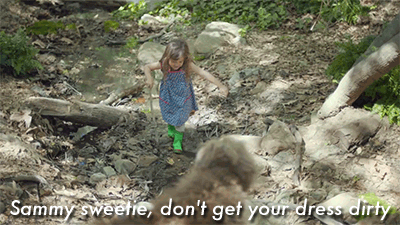




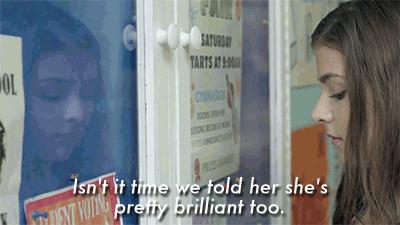

Pretty little plant on my desk ^.^
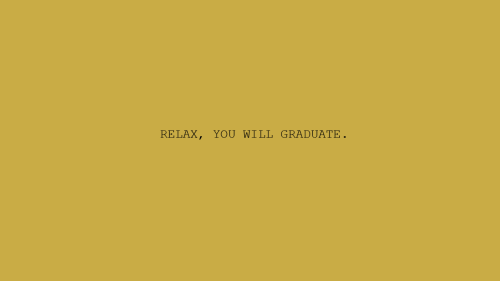


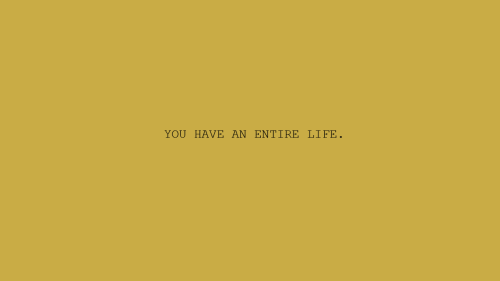
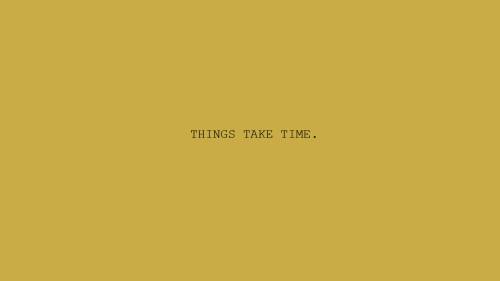


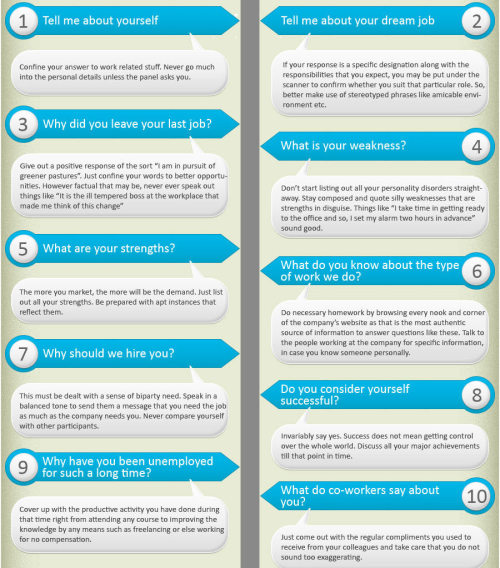
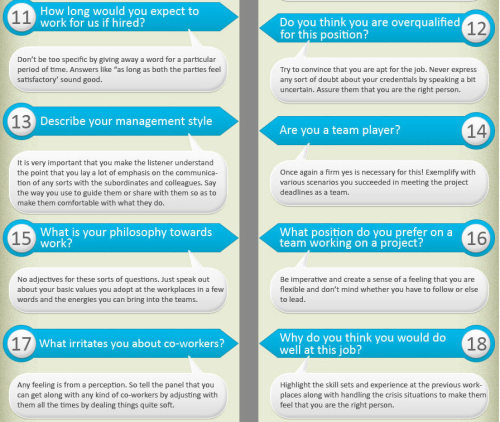
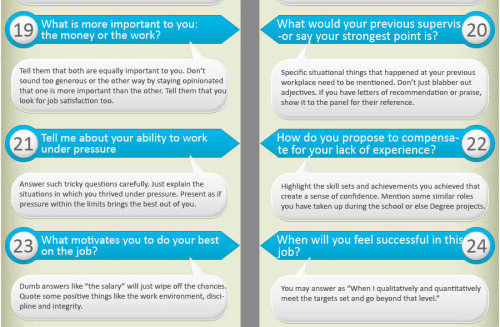

How to Answer the Top 35 Asked Interview Questions from The Undercover Recruiter here. Posted for friends looking for jobs this summer. Unfortunately you may also be asked illegal questions and these are two pretty good articles here and here.
It’s 2017. You need motivation? No, what you need is discipline. IT’S TIME TO FOCUS. Force yourself to do things. Force yourself to get up early, make your bed, go get ready, and go. Force yourself to make plans for the day, and follow through with all those plans. Force yourself to get to class early so you can look over the material. Force yourself to pay attention in class and turn off your phone or at least put it on silent. Stop texting your friends and going on Instagram in class. You are wasting your time, so why even bother going to class if your are going to be distracted? Be selfish. Stop giving your time to people that do not matter. YOUR TIME IS SO SO PRECIOUS. STOP WASTING IT! This is the most important thing that you can do right now, take care of you and your education. Stop being distracted by the world and it’s never ending problems. This is the time that you need to put toward yourself because you are the greatest investment of your life. EVERY. SINGLE. DAY. EVERYDAY is a chance to wake up and give your 150%. EXHAUST yourself. That is the only way to give your all. At the end of the day, you should be exhausted from working so much, from reading so much, from exercising so much. Don’t go home because you are tired. Do whatever you need to get done and don’t come home until it’s all done. Stay late at the library. You feel tired? Good. That is how you know you are giving it your best. Go to the gym, and give your work out your all. When you go home, you should feel like you are drained. You should feel like you have nothing left to give because you gave it your all. Because then, you can be proud of yourself and everything you have achieved. Giving it your all is what matters. Give your all every single day. Discipline your mind and your body and you will become successful. You fall back one day? That is O.K., try the next day. You are human, so accept your mistakes. However, love yourself enough to know that you will never give up working on yourself and your dreams. THIS IS IT. THIS IS YOUR LIFE. Right now, no matter what circumstances we are all in, is what matters. Take advantage of today. Write down your dreams and force yourself to work toward them, one day at a time. IT’S TIME TO FOCUS. THIS is your year. This is your life. One day at a time baby. One day at a time. Go ahead and don’t stop.
(via not-now-im-studying)

